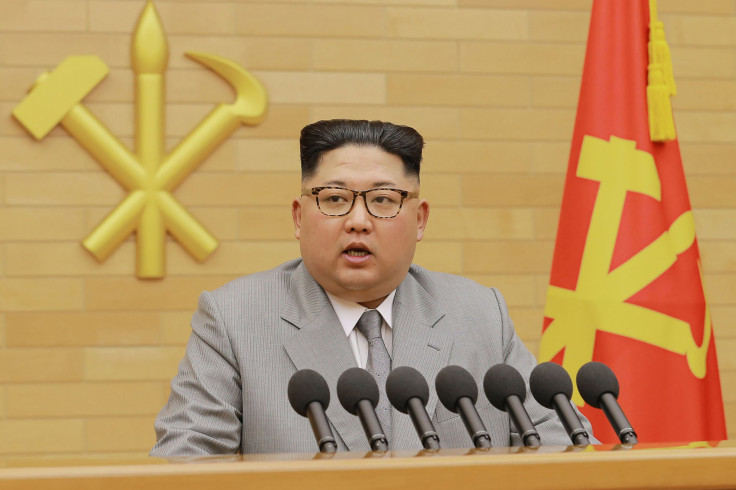Kim Jong Un's Death Will Lead To 'Chaos, Human Suffering'; Dictator's Sister Is Possible Successor

KEY POINTS
- No one knows for certain what, if anything, happened to North Korean dictator Kim Jong-un
- Kim Jong-un has not designated a successor to him
- His death might result in a bloody power struggle with the potential to trigger a civil war
Dead or alive? Probably the latter, but no one knows for certain what, if anything, happened to North Korean dictator Kim Jong-un that made him vanish from the public eye since April 12.
Kim is said to be recovering from a failed angioplasty operation to insert a stent into a blocked coronary artery. The obese Kim weighs more than 300 lbs, stands 172 cm tall and relentlessly smokes up to four packs of cigarettes a day, sources reveal.
Daily NK, a website run by North Korean defectors in Seoul, claims Kim has had to deal with cardiovascular disease since August 2019. Western media outlets earlier this week reported United States intelligence agencies revealing Kim is "in grave danger" following the angioplasty surgery conducted at his family's Hyangsan Clinic in North Pyongan province. Still other U.S. intel has Kim walking at a beach in the port city of Wonsan in eastern North Korea.
Whatever his true physical condition, Kim's death or impending death is raising fears it will destabilize this heavily militarized region and trigger a massive refugee exodus out of North Korea and into South Korea and China. Kim's fate will also force the U.S., South Korea and other regional allies to react to the upheaval to contain the Korean People's Army (KPA) with its 1.3 million active military personnel, the Military Times noted.
The gravest threat to stability in North Korea is the lack of a designated successor to Kim. All Kim's three children are still minors. This fact means the strongest contender for the title of Supreme Leader is Kim's younger sister, Kim Yo-jong, who is only 32 years old.
Without a designated successor to Kim, there will be “chaos, human suffering, instability,” believes retired South Korean Lt. Gen. Chun In-Bum, former head of his country’s special operations.
“It’s bad news for everyone," he told Military Times.
Chun was seconded in his opinion by David Maxwell, a senior fellow at the think-tank, Foundation for Defense of Democracies. Maxwell fears the worst, saying a U.S. and South Korean military reaction to the upheaval after Kim's death might require an effort that “will make Afghanistan and Iraq pale in comparison."
Like Chun, Maxwell also argues a lack of clear succession will trigger massive chaos as generals fight among themselves and then against the Kim family to succeed Kim. Maxwell said it's worth noting Kim Il-Sung designated his son, Kim Jong-il, as his successor in 1994. In turn, Kim Jong-il designated Kim Jong-un his successor in 2009 or 2010.
“It is unknown whether Kim Jong-un has designated a successor,” Maxwell told Military Times. "We can speculate that perhaps his sister Kim Yo-jong has been designated as his successor based on her recent promotion and the fact she has begun making official statements in her name beginning last month."
Maxwell said it remains unknown if "a woman, despite being part of the Paektu bloodline could become the leader of the Kim family regime.” He said no clear successor will likely lead to a regime collapse.
The ensuing in-fighting will be bloody and will pit the generals commanding the KPA against the Workers Party of Korea and the Kims in a civil war.
Maxwell believes there will be a lot of bad outcomes to this power struggle. He warns the South Korean/U.S. alliance to be prepared to handle the ensuing military crisis. Then, there's COVID-19.
There is a “humanitarian disaster that will unfold in North Korea,” estimates Maxwell. It will be further complicated by the COVID-19 pandemic currently ravaging the country.
“South Korea, China, and Japan are going to have to deal with potential large scale refugee flows,” said Maxwell. “Units of the North Korean People’s Army are going to compete for resources and survival. This will lead to internal conflict among units and could escalate to widespread civil war.”
© Copyright IBTimes 2024. All rights reserved.





















